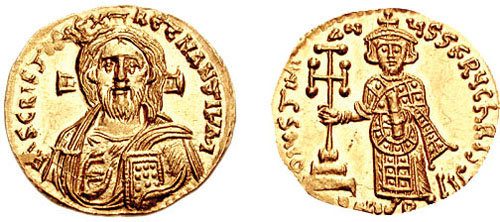
This portrait of Christ is the earliest numismatic representation of Jesus, and marks a new development in Christian iconography. At the Trullan Synod, called by Justinian in 692 AD in an attempt to reconcile the growing religious rift between Constantinople and Rome, the issue of how Christ was to be portrayed was debated. The council's subsequent ruling (Canon 82) decreed that henceforth Christ should be seen in human form, rather than the symbolic representations which had prevailed during Christianity's earlier period. It is not known whether Justinian's introduction of the portrait on his coins was the result of this decree, but the Synod generally followed the thinking of the court in Constantinople. The split between the Pope and the Emperor only widened, as did the dispute between those who favored the use of such religious imagery (εικονοδουλοι, "image worshippers") and those who opposed its use (εικονοκλαστοι, "image smashers"), a dispute that also played a role in the expanding ideological confrontation between Christianity and Islam, with al-Malik introducing aniconic coin types at about the same time as Justinian was placing Christ on the Byzantine solidus.
JUSTINIAN II. First reign, 685-695 AD. AV Solidus (4.45 g, 6h). Constantinople mint. Struck 692-695. Facing bust of Christ; cross behind head / Justinian standing facing, holding cross potent on three steps; I/CONOP. DOC II 7 var. (officina); MIB III 8a; SB 1248. Sharp strike on a full flan with complete legends. Arguably one of the finest known specimens.